
 Flash News
Flash News
Korça/ 40-year-old man jumps from fifth floor balcony, in critical condition
Croatia restores compulsory military service
Illegal constructions in Theth, Manja demands disciplinary proceedings against prosecutor Elsa Gjeli
Details from the murder of Renis Dobra, the perpetrators came with 2 Range Rover cars from Rrëshen
The Supreme Court left him in prison, Meta addresses the 'Constitution'

Blendi Kajsiu / Panorama.al
The media debate on the integrity of the 2021 elections is increasingly hiding the real crisis that these elections have produced. The deep tensions that the victory of the SP is producing, especially in the opposition camp, stem from the fact that the government in Albania serves for the employment and economic survival of the party electorate.
So the real concern of opposition leaders, beyond electoral standards, has to do with the difficult economic outlook faced by its militants. The Albanian economy, especially the private sector, does not produce enough employment to meet the needs of Albanian society.
In fact, according to a study conducted by Ardian Civici, Arlind Rama, and Ledjon Shahini on the labor market in Albania, the employment rate in Albania has dropped from 56.4% in 1991 to 42.1% of the labor force in 2016.
In other words, our economy has been creating fewer and fewer jobs since the fall of communism. This problematic trend is further exacerbated by the Covid-19 crisis. Thus, only in 2020, according to the Governor of the Bank of Albania, 43 thousand jobs were lost, most of which came from the private market.
While the private sector offers less and less employment, from 2015 to 2019 in the state administration were created 8 thousand new jobs, according to INSTAT. This increase is even greater during the 2021 election campaign.
But the increase in the weight of the public sector about the private sector is not a product of leftist or social-democratic policies. Rather, it is the result of a neoliberal development model that eliminates state policies that protect domestic production or industries. It is this model that produces a national phlegmatic economy and unable to produce enough jobs.
Under these conditions, the power struggle is transformed from a political contest of ideas and visions into a struggle for survival. Loss of power means loss of employment and income in the midst of a deep economic crisis. Just as taking power is an opportunity to get out of misery and emigration. This is one of the basic sources of tension and polarization between the parties, which does not have a purely elitist or ideological dimension.
The basic division today in Albanian society is not north-south, communist-anti-communist or religious, but democrat-socialist. This is not a division produced simply by politics, but above all by the economic system that transforms the state into plunder and a source of electoral employment. In this case, after the 2021 elections, the "opposition people" have received a triple blow. First, he lost the central government, secondly the local one, and thirdly he faces the Covid crisis because he works mainly in the private sector.
Meanwhile, the "socialist people" benefit exclusively from both local and central government, while being much more protected from the current economic crisis. Denunciations against the state and the economy, accusations against oligarchs, and money laundering stemming from this reality. More than against the concrete oligarchs, who are the same ones who yesterday got rich with the PD, these accusations express deep dissatisfaction with a situation where a part of the population has occupied the state for 12 years and the rest remains on the streets.
After eight years in opposition, after the loss of local government and the degradation of Rama's government, the Democratic Party and the "democratic people" were convinced that it was now their turn to come to power. If power belongs to all the people, as it should be in a democracy, it was already the Democrats' turn to take advantage of it in the next eight years.
In a system that offers only two alternatives, the electorate had nowhere else to go. This expectation was more than understandable if we consider that since 1997 this has been the dynamics of power-sharing in Albania.
He has been replaced every eight years by the SP to the DP. In fact, the real fable of the opposition campaign was not "we are the best", but "it is our turn". For this reason, today within the opposition people there is deep and double anger. First with the "infidelity" of Rama who, against any precedent and sense of justice, took power to milk him for another 4 years. Secondly, against Basha who "stole" his turn.
So much of the criticism leveled at the latter has nothing to do with the fact that he failed to build an alternative or a new spirit, but with his failure to maintain the vote or the queue to come to power. The Socialist Party and Edi Rama understand very well this reality that is hidden behind the fog of the debate on the integrity of the elections where endless analysts contribute (without excluding the author of these lines).
They understand well that the democratic people are a very important segment of Albanian society and can not be excluded indefinitely from the benefits of power.
Therefore, the offer of Rama and SP for cooperation is serious and should be taken seriously. They know full well that the democratic people, even though they may not be the ruling majority, can be transformed into a large blocking and destabilizing minority. Especially when all the benefits of power are taken by only one party and especially when it concentrates them in so few hands.
Latest news


Malltezi: SPAK admits, we are in a process that began with Balla's false report
2025-07-10 22:34:16

Si të çliroheni nga bllokimet emocionale me anë të ushtrimeve
2025-07-10 21:57:24

Lala: Veliaj wanted to return as mayor
2025-07-10 21:40:46

VIDEO/ Brawl in Bolivian parliament, deputies physically clash
2025-07-10 21:20:30


Albania experienced one of the longest heat waves of the last decade
2025-07-10 21:01:09

The Government approves new procedures for declaring residence in e-Albania
2025-07-10 20:39:32

Koka: Northerners will not forget Edi Rama's racist operation in Theth
2025-07-10 20:18:24
The 3 zodiac signs that will be most affected by the 'Full Moon' of July 10
2025-07-10 20:04:49
New director of the National Center of Cinematography appointed
2025-07-10 19:51:12
Korça/ 40-year-old man jumps from fifth floor balcony, in critical condition
2025-07-10 19:40:19
'Tired Woman'/ The Syndrome That Affects Thousands of Women Every Day
2025-07-10 19:34:02
Jane Birkin's original Hermès bag sells for $10 million
2025-07-10 19:26:22

Britain-Ukraine agreement signed for 5,000 Thales missiles
2025-07-10 19:00:25
Fire in Zvërnec, flames endanger two hotels
2025-07-10 18:57:19
Croatia restores compulsory military service
2025-07-10 18:39:01
Spahia: The great truth of the strong accusation of the residents of Theth
2025-07-10 18:35:07


The Supreme Court left him in prison, Meta addresses the 'Constitution'
2025-07-10 17:57:21
New punishment with 'new' regulations
2025-07-10 17:54:46
EU translator fired over fears for Zelenskyy's safety
2025-07-10 17:45:37
'You are a policeman, but not God, take my soul', protest for Agon Zejnullahu
2025-07-10 17:41:21


Video/ Rama repeats the scenario, kneels before Meloni again
2025-07-10 16:56:31
He set fire to a plot of olive trees, 50-year-old man arrested in Shijak
2025-07-10 16:46:19

Rubio: US and Russia have exchanged new ideas for Ukraine peace talks
2025-07-10 16:36:20
Death of 27-year-old, Lipjan Police Commander Resigns
2025-07-10 16:21:28
Video/ An apartment burns in Tirana near the New Bazaar
2025-07-10 16:09:36


Jensila lights up the internet with her birthday greetings to Ledri
2025-07-10 15:42:08
They're full of pesticides! List of 12 products we need to be careful of
2025-07-10 15:31:04

Worker falls from scaffolding in Shëngjin, urgently sent to Trauma
2025-07-10 15:11:03
Malltezi: Within one day they seized my accounts, properties and shares
2025-07-10 15:01:23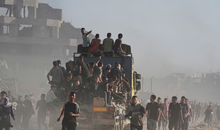
EU: Israel has agreed to more aid to Gaza
2025-07-10 14:55:19


Murder of Reni Dobra, 23-year-old's vehicle pulled from the water
2025-07-10 14:29:23
Trump's tariffs on Brazil raise coffee prices
2025-07-10 14:16:07
Ursula von der Leyen survives no-confidence vote
2025-07-10 14:04:27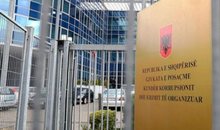

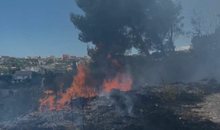
Fire in Lezha, flames near electrical substation
2025-07-10 13:32:24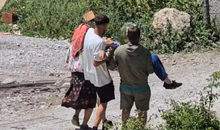
Residents clash with police in Theth, a woman faints
2025-07-10 13:24:38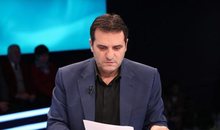
"Rama and Xanun"
2025-07-10 13:15:46

Zodiac signs most likely to get divorced in July 2025
2025-07-10 12:45:51
A scapegoat for an illegitimate Republic
2025-07-10 12:35:02
"He has devastated his own nation"/ Berisha: Rama imprisons his opponents!
2025-07-10 12:26:54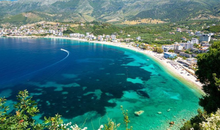

Albanian man injured with knife in Italy
2025-07-10 12:08:55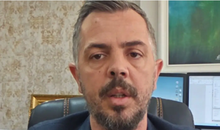
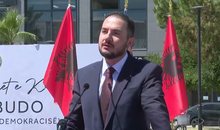




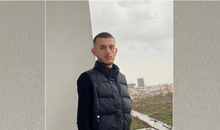
23-year-old in Mat drowned with rope, 4 suspects are being held
2025-07-10 10:58:53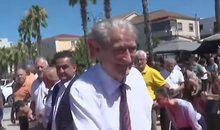
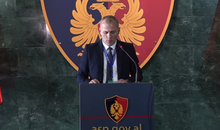
After the dismissals, the new director of the Shkodra Police is appointed
2025-07-10 10:30:10
BIRN: Rama's action for public spaces, a repeated spectacle
2025-07-10 10:29:11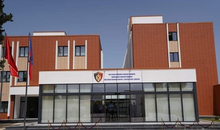
Action in Theth, Shkodra Police leaders dismissed
2025-07-10 10:16:28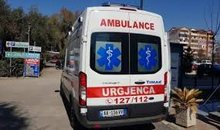
Fatal accident on the Tirana-Durres highway
2025-07-10 10:01:58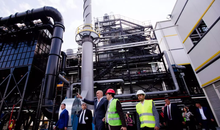
The incinerator does not exist, but the government continues to increase funds
2025-07-10 09:51:45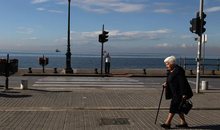
Albania is aging at a rapid pace! 30% of the population is over 60 years old
2025-07-10 09:46:23
End of an era, Modric says 'goodbye' to Real Madrid
2025-07-10 09:36:09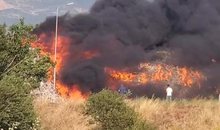
Mount Dukat has been on fire for 6 days, residents request air intervention
2025-07-10 09:27:24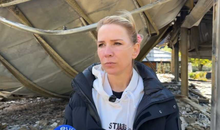

"Poverty on the rise"/ DW: Many people in Germany are not getting paid
2025-07-10 09:08:06
Horoscope, what do the stars have in store for you today?
2025-07-10 08:51:59

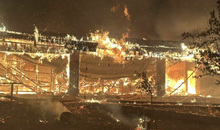
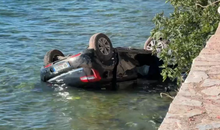

The scorching heat returns, the thermometer climbs to 40°C
2025-07-10 07:58:52
Morning Post/ In 2 lines: What mattered yesterday in Albania
2025-07-10 07:46:35
Tourist operator in Theth: They are demolishing our houses without warning
2025-07-09 22:54:57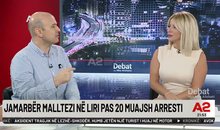

Trump and Israeli commander warn: Gaza ceasefire could be near
2025-07-09 22:13:21
Fire in Elbasan Landfill, pedagogue: It is a cancer and environmental crime
2025-07-09 21:54:47


Dangerous summer, number of snake bites increases
2025-07-09 21:22:13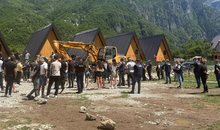
Berisha appeals again: Stop state terror against the residents of Theth!
2025-07-09 21:15:36
'Kissing disease' virus linked to several forms of cancer
2025-07-09 21:04:44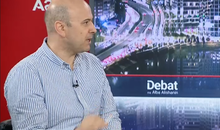
Malltezi confesses after release: Justice has become a political weapon
2025-07-09 20:51:48
Vokshi: Albania's EU integration has stalled due to lack of free elections
2025-07-09 20:37:21
